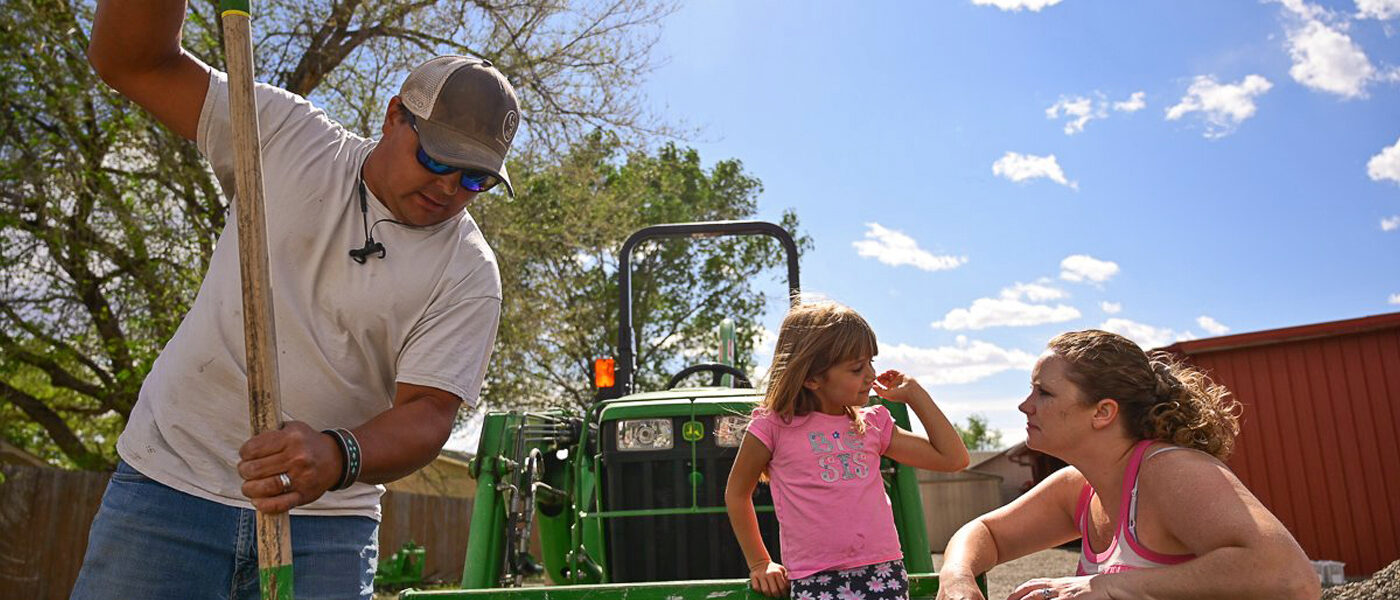
Homegrown Stories is a storytelling project from our partners at Western Organization of Resource Councils (WORC). It celebrates the hardworking people in our food system trying to do things right. The people of these stories are hard at work to create diverse, wholesome, regional food systems in our communities. They feature people working hard to keep the land healthy and their communities nourished.
WORC gave us permission to repost these farmers’ Homegrown Stories here in an effort to change the narrative of agriculture in America.
More Small Scale Farms can benefit Farmers, the Environment, and the Consumer
When Michael Lobato and his wife Sara bought their five-acre farm back in 2020, it would be hard to imagine the plot would be viable for growing food. Today, there is a half-acre garden, a field of western native grasses, and the potential to grow much more. Before it’s transformation, the land had been overtaken by an invasive weed, acre after acre, a monoculture of kochia. Kochia is a noxious weed, and its ability to sprout and thrive in poor soil and dry conditions has led it to outcompete other native species. This land is not just a business venture for the Lobato’s. Michael and his family see themselves as caretakers, rehabilitating the soil and nurturing the land back to health through agriculture.
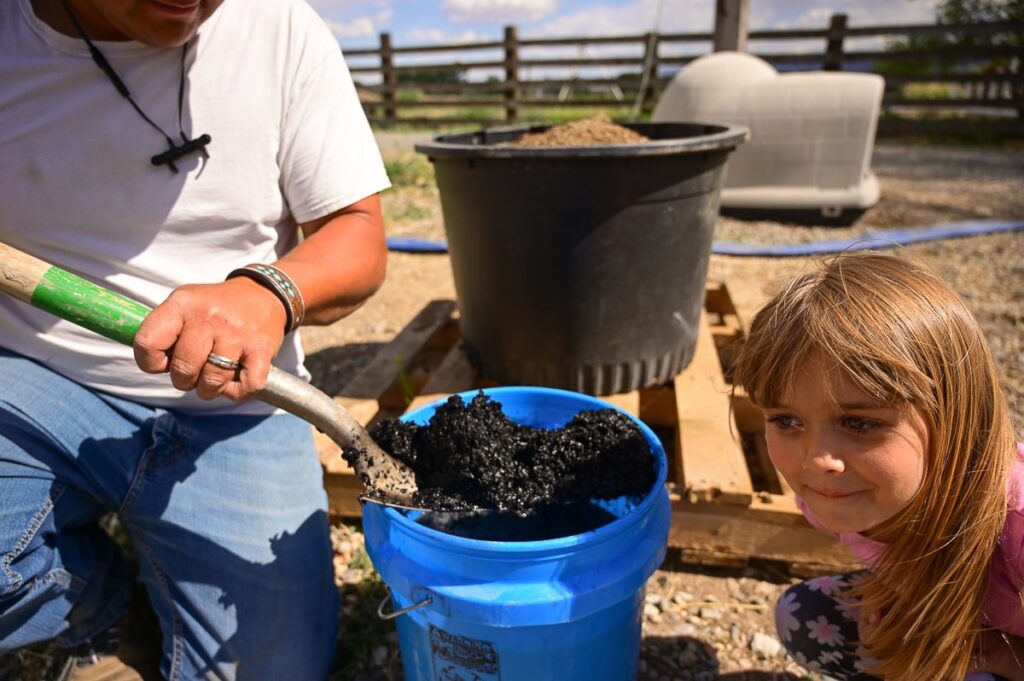
Photo © Western Organization of Resource Councils
In two years, Michael and his family transformed, what he referred to as a wasteland, into a farm. Weeds, rubble and lots of wood scraps and parts of fences were strewn about from what was once a sheep ranch. Lobato Farms is located just outside of Fruita, Colorado. A lot of sweat and love went into this transformation, most of the motivation came from Michael’s children. “I’m doing this for my kids, to give them those experiences and knowledge and skills,” said Michael. His hope is that one day his kids can run a farmstand on their property and help at farmers markets. For now they pitch in where they can and follow Michael’s mother, who has also been heavily involved in the renovation of the land. “Mike always wanted us to save the trees, it was to the point where we couldn’t have a real Christmas tree ‘cause he would get so upset,” remembered Michael’s mother, Joanne Lobato. “I just thought harvesting a good tree for a one-day event and then sending it to the landfill was a waste of a resource. It’s less about being ‘green’ or saving the planet and more about respect and not being wasteful” said Michael.
Here the trees are scarce and the wind is mighty. It’s a dry landscape. Fields are irrigated from the ever-shrinking Colorado River, but Michael is on the side of innovation and has been utilizing several natural methods to keep moisture in the soil on his farm. The Colorado River provides irrigation for 5.5 million acres of farmland. This is at risk due to rising temperatures and drought driven by climate change, combined with outdated river management and overallocation of limited water supplies. Forward-thinking water conservation techniques have begun to spread in many farming communities and could have substantial impacts down the line in a rapidly changing climate.
“People want to eat healthier, eat cheaper, and eat local. You’re just not going to find that at a grocery store, it’s all trucked in and expensive.”
When Michael decided to leave his job in mining for a job in agriculture, he was met with doubt, “I’ve had people tell me, you went from the Colorado School of Mines to agriculture, that’s a big risk,” said Michael, “and I would say, yeah, but there’s a lot more importance to it.” Michael explained that he saw a shift in the food system coming even before the covid-19 pandemic. “People want to eat healthier, eat cheaper, and eat local. You’re just not going to find that at a grocery store, it’s all trucked in and expensive,” explained Michael. Food shortages and pandemics have been adding to the need and desire for a more localized food system across the United States. “We saw in the pandemic, one pixie stick goes down and the whole thing crashes,” said Michael, “And so people need to be self-reliant in their own towns, each and every town needs a good infrastructure for food.”
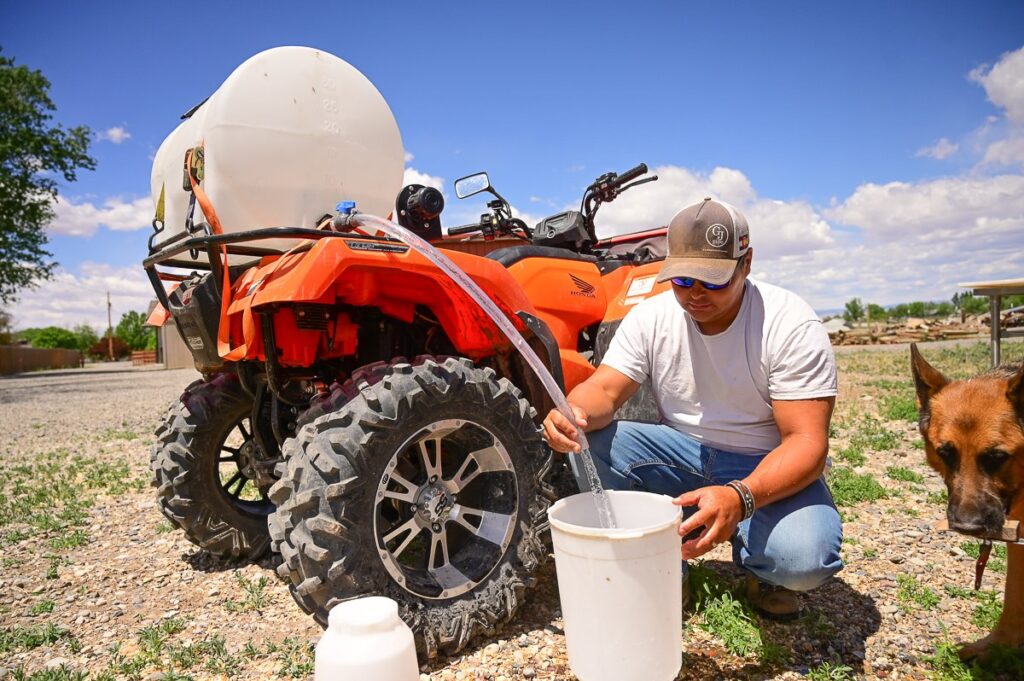
Photo © Western Organization of Resource Councils
With the goal in mind of providing locally grown produce to his community, Michael started working on putting the infrastructure in place for his new farm. Irrigation, fencing, reseeding pasture, it can all start to feel overwhelming for someone just starting out. “Step by step” is something of a mantra for Lobato Farms in regards to taking on all of these tasks. With each step Michael was also carefully considering how he could accomplish his goals with a conservation framework. The soil on the property needed several steps before he could even think about planting produce. Dry and depleted from supporting nothing but a monoculture of kochia, Michael began the process of bringing the soil back to life. They tilled four acres, planted native grass seeds, and applied a soil additive that contained microbes, bacteria, nutrients and fungi. He sprayed the native pasture with a foliar spray to kickstart the soil back into a healthy environment. This was just the start.
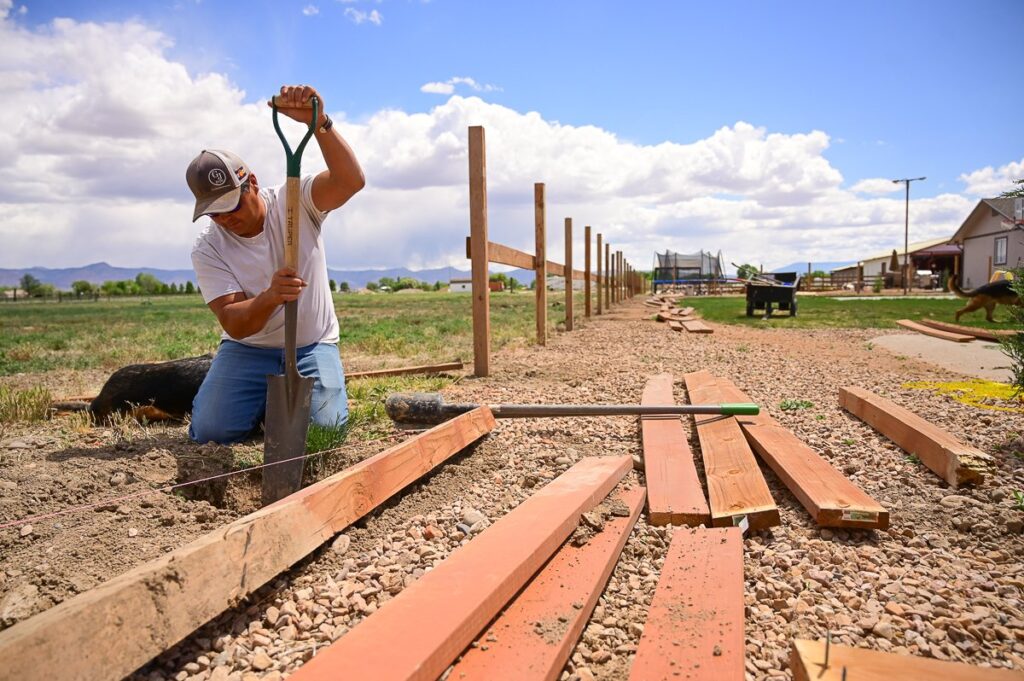
Photo © Western Organization of Resource Councils
In 2021, Lobato Farms volunteered a plot of land to the Citizens for Clean Air Grand Junction/Western Colorado Community Foundation project for a biochar study. Biochar is a super charcoal made by heating any biomass – for example, corncob, husk or stalk, potato or soy hay, rice or wheat straw – without oxygen. Most commonly, woodchips and shavings are used. The starting materials impact the end product, so manufactures source materials based on general demand. All of the cellulose, lignin and other, non-carbon materials gasify and are burned away. What remains is pure carbon – 40% of the carbon originally contained in the biomass. Its porous nature gives Biochar more surface area to absorb nutrients and water, making it excellent for water retention in soil. In addition to this benefit it also can lower the acidity of the soil, resulting in higher yields, promoting seed germination, and more.
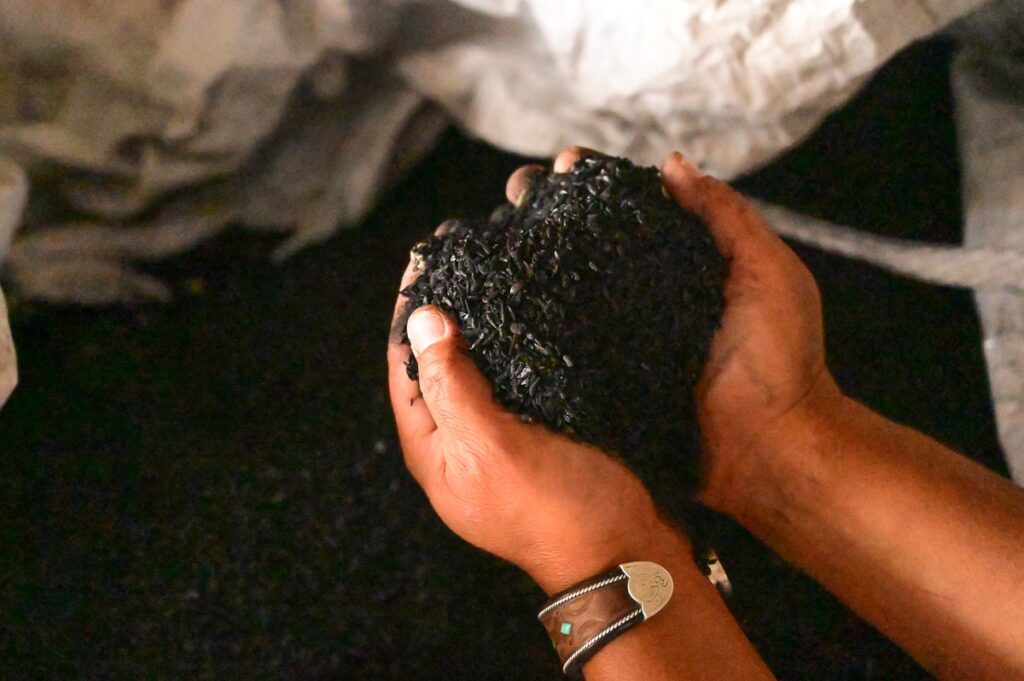
Photo © Western Organization of Resource Councils
The test plot contained four small gardens with the same plants. One used 10 percent biochar and compost, another used 20 percent biochar and compost, another with only pure compost and one used nothing at all. The study showed that an addition of 10 percent of biochar into the soil resulted in better yields of produce. Michael decided to order a bulk supply of biochar that he sells at cost to other farmers in the area.
Michael’s pasture with native grasses took off. The native plants were already fairly drought resistant but conserving water and making sure his land can handle drought is a priority for Lobato farms, so he took it to the next level. “My first thought was biochar, but then came the challenge of how to apply it to the soil because I couldn’t till it in, as the pasture was already establishing itself,” explained Michael. Biochar needs to be close to the roots to be effective so a top dressing wouldn’t work either. The next step for Michael was to develop an entirely new method of application so that biochar can be added to existing perennial crops through injecting it into the soil. This method can be used any place where deep tillage isn’t an option.
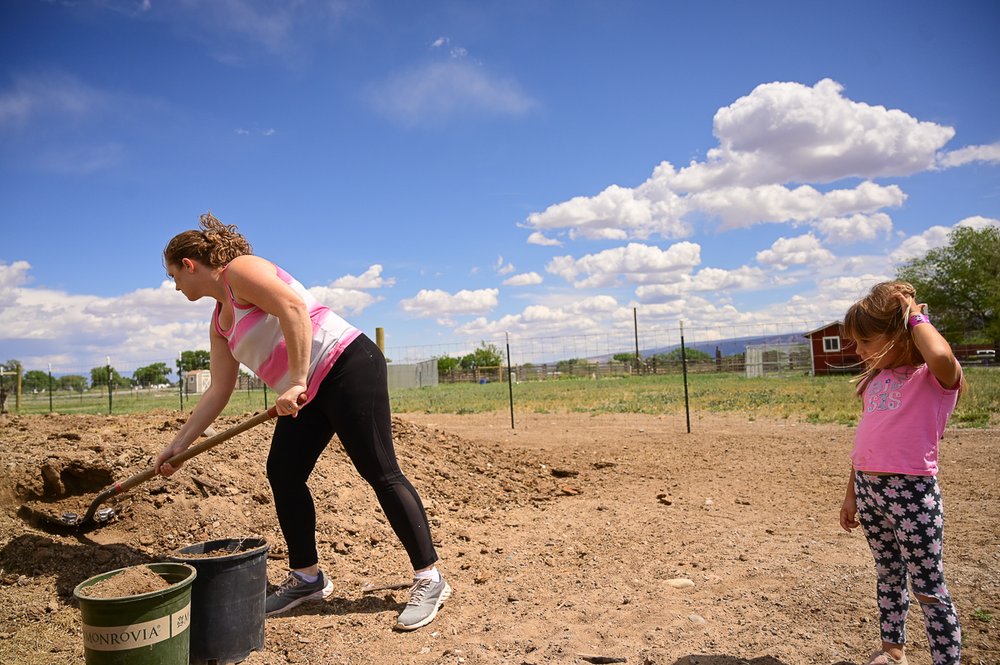
Photo © Western Organization of Resource Councils
Michael found a machine that would work for his idea, but there is only one of them in the world. The machine is currently used in the landscaping and sports turf industry but Michael’s hopes to work with the manufacturer and run a small-scale test with the machine and possibly develop the machine to be better adapted to agriculture. “I have assembled a small test team and have applied for a grant to carry out the testing. If awarded the grant, we will test the method in the spring of 2023 at the Colorado State University Grand Valley Research Station in Fruita, Colorado. A few miles up the road from Lobato Farms,” said Michael.
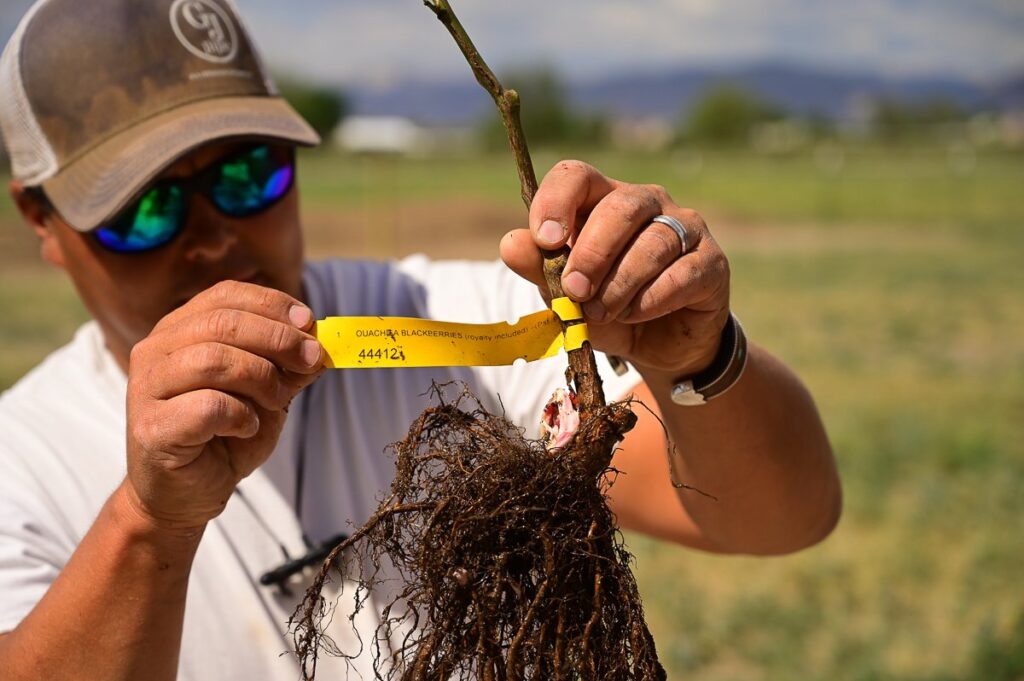
Photo © Western Organization of Resource Councils
Michaels innovative tendencies and open mind has the potential to make waves in the agriculture industry, but it won’t happen overnight. “It can be tough sometimes because we’re a bit of a black sheep farm for this area,” said Michael. Most produce farms and vineyards are located in Palisade, Colorado, east of Grand Junction; there aren’t many farms like Lobato in the western part of the valley. Michael’s long-term goals are to lead by example in the hopes of building a stronger and more robust farming community in this part of the valley. “Our vision for this land was just to be a part of a larger network of small growers in the valley providing what they can grow best, you know if I can’t grow melons, then I’ll grow something else that grows well here,” said Michael. He hopes to see the market that has already developed continue to grow and expand to meet the needs of the community.
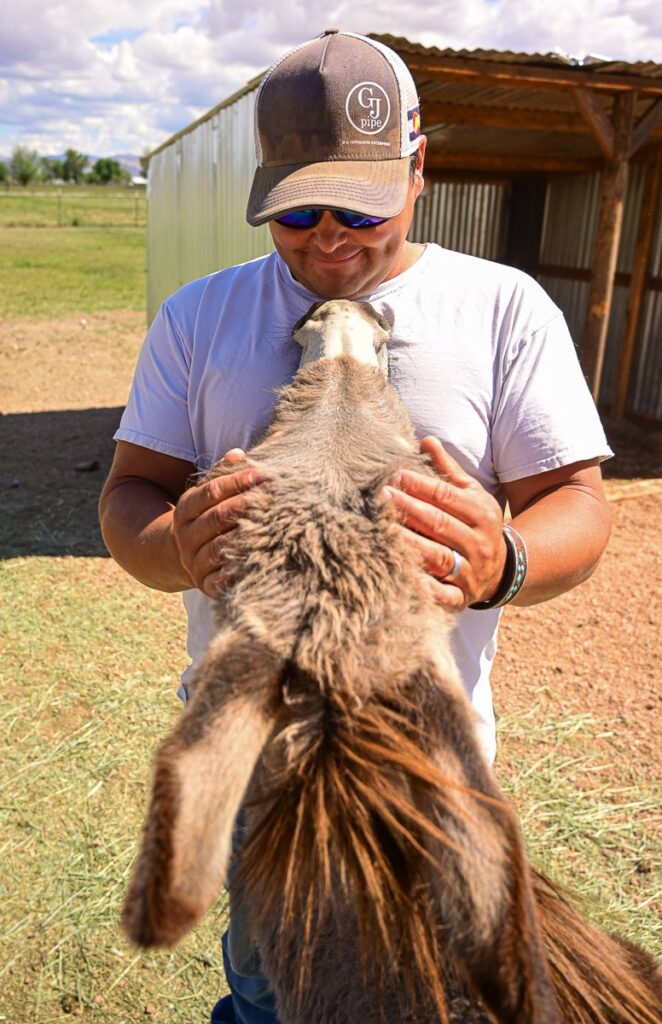
Photo © Western Organization of Resource Councils
As people begin to see the fractures in the industrialized food system, Michael believes that more and more small-scale farms like his will begin popping up. “What were once large farms are now being sold off as smaller scale plots or even being turned into subdivisions,” said Michael. The larger 250 acre ranches are becoming five acre or smaller farms and homesteads. Michael has proven with his plot of land that you don’t need a large acreage to have high yields of produce when you work with the land and utilize water saving techniques. With a localized market, each small farm can bring something to the table to meet community demands and keep food local.
